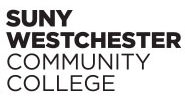
Academic success is different for everyone. For some people, it comes easily, while others might find it frustrating and challenging. No matter your skill level, you can improve your performance in class. The key to academic success is practice and dedication. Academic skills help you to succeed in school no matter what subject you’re taking. These skills also come in handy outside of the classroom because they make you a well-rounded individual who can succeed at any task you set your mind to. Improving your academic skills sets you up for future success both in school and in life after graduation. Read below the list of academic skills and abilities and how they can benefit your studies.
What are academic skills and why do they matter?
Academic or thinking skills are broad and general abilities that help you think critically, reason analytically, solve problems, read effectively, and understand new information. They are transferable skills that can be applied across different fields of study and job roles. These thinking skills will help you succeed in your academic courses as well as in your future career. Academic skills are also referred to as thinking skills, problem-solving skills, reading skills, written communication skills, or critical thinking skills. Regardless of their name, these are all ways of thinking about things logically rather than just learning facts. Understanding how they work and how to improve them can positively impact your success in school. If you’re struggling with your schoolwork or classes because of unfamiliar terms or topics, keep reading to discover the list of academic skills that you need to learn more about. Continuous improvement of these academic skills is necessary to make the most of the program and have a successful career. If you’re looking to pursue Master of Public Service, see this here.
List of academic skills and abilities you need to improve for a higher GPA
Critical thinking skills
Critical thinking is applying logic and reason to understand and solve problems. It is the process of examining assumptions, concepts, and ideas to ensure they are valid, sound, and accurate. It is the act of thinking through something comprehensively and precisely to understand it. It is important to consider learning and developing these skills to become an influential critical thinker. Several sub-skills are essential in critical thinking. They include being able to identify and understand concepts, being able to interpret information, being able to make connections between different ideas and concepts and being able to generate and evaluate ideas. Thinking critically is crucial for almost any course or subject you take. Critical thinking is one of the most important skills you can have. It is essential for taking in new information, sorting through it, understanding it, and then using it properly.
Reading skills
Reading skills are strategies used to make sense of the written text. Reading skills include comprehending, interpreting, and analyzing written material. Understanding the difference between reading skills, reading strategies, and reading comprehension is essential. Reading skills are the abilities and strategies that you use while reading. Some of these skills include skimming, scanning, and identifying main ideas. Reading strategies are the ways that you use to improve your reading skills. These strategies include previewing, predicting, questioning, making inferences, visualizing, story maps, and retelling. Reading comprehension is the understanding of what you are reading. This can be different from reading skills, as it requires you to grasp and retain the information more thoroughly. Most scholarly texts require academic language skills to understand and discern.
Writing skills
Writing skills are the abilities and strategies used to create written texts. These skills include identifying a thesis, creating an outline, and writing an effective essay. Writing is a critical skill that’s often overlooked. If you struggle with writing essays or papers in your courses, you may learn more about writing skills. Suppose you want to become a more effective writer. In that case, there are some skills that you can learn and apply in your daily life, e.g., creating a solid thesis statement, mastering grammar, creating winning introductions, and writing flowing outlines.
If you’re unconvinced with your writing skills, please contact the following academic writing service CustomWritings.com. It’s a reliable online essay writing company that has been in business for over two decades. The company provides writing services to students in High school through to college. They have employed expert writers for your assignments, ensuring that you get papers of the highest quality possible. Visit their website for a quote and any other assistance you may need.
Speaking and listening skills
Speaking and listening skills are used to understand and respond to spoken language. These skills are essential for understanding course lectures and participating in academic discussions. Speaking and listening skills are interrelated but differ in many ways. Speaking skills are the abilities and strategies used to communicate with spoken language, including knowing how to prepare and organize your thoughts, structure your ideas and sentences, and use the proper vocal technique – academic advisor skills. Listening skills are the abilities and strategies used to understand spoken language, including being able to focus your attention, identify and interpret non-verbal cues, and make connections between what others are saying.
Problem-solving skills
Problem-solving skills are the abilities used to identify, generate, and solve problems. Escapely team building events take it to the next level through shared collaboration and adventure! Understanding the difference between problem-solving and critical thinking skills is vital. Critical thinking skills are the abilities used to understand information and solve problems, while problem-solving skills are the abilities used to generate solutions to problems. Problem-solving skills are used to understand and solve a wide variety of issues. This can include academic as well as day-to-day problems. If you want to become a better problem solver, there are some skills that you can learn and apply in your daily life. These include being able to identify problems and issues, being able to generate solutions to problems, and being able to learn from previous problem-solving experiences.
Research skills
Research skills are the abilities used to find and understand information from various sources. This can include academic sources such as journal articles, books, or online articles. It can also include non-academic sources such as interviews with experts or focus groups. Academic research skills are the abilities used to find and understand information from scholarly sources. If you want to become a better researcher, there are some skills that you can learn and apply in your daily life. These include being able to identify different types of sources, understanding how to find information using library databases, and understanding how to use reference materials to find information. Source verification is also an example of academic skills. It allows you to verify the credibility of sources before using them in your academic work.
Math Skills
Math skills are the abilities used to understand, calculate, and solve mathematical problems. If you are taking a math course in school, it is crucial to understand the math skills required. Students can apply the skills in algebra, geometry, or trigonometry. If you want to become a better math student, there are some skills that you can learn and apply in your daily life. These include being able to understand, calculate, and solve mathematical problems. We spoke to Paul Dunlop, a math and games researcher at CoolOldGames.com, and he provided a practical example:
“Exploring the probabilities of classic dice-rolling games can offer a practical and enjoyable way to strengthen your abilities. Analyzing the likelihood of different outcomes enhances your grasp of probability concepts, which are fundamental in various branches of mathematics.”
How to improve your academic writing skills in six weeks or less
Academic writing is one of the most critical skills that a person can possess. It must be developed and improved throughout one’s academic career. Businesses and schools will not hire someone incapable of writing clearly and concisely. It would be best to start practicing your writing early, whether in elementary, middle, high, college, or graduate school. Follow these tips to find out how to improve academic writing skills:
- Read one book per day: One of the most important things you can do to improve your academic writing skills is to read and study other people’s academic papers. Try to understand what makes excellent academic papers great by reading and studying other people’s articles.
- Practice every day: They say practice makes perfect for a reason. Practicing every day will make you more fluent and natural over time. You’ll also become competent and reliable. No improvement comes easy.
- Create a schedule: When you create a plan, you are likely to stick with it. The American Psychological Association recommends that you write for 15 minutes every day. You do not need to write an entire essay in 15 minutes, but instead, work on editing the work that you have already done.
Conclusion
Now that you know what an academic skills list consists of, you can use this knowledge to improve your studying. Mastering all the skills is essential to becoming a more successful student or adult. Remember that you’ll use these skills throughout your life, no matter your career. So, make sure you’re taking the time to improve them. And don’t forget—you can learn from others’ experiences, too.







Thank you for the article!